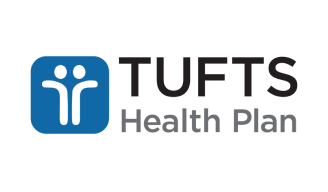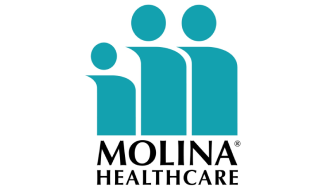Wallingford, Kentucky, United States
ARC Belle Grove Springs
Verified
Verified
This provider’s information has been quality-checked by Recovery.com’s Research Team for accuracy and completeness, including center verification through appropriate third-party organizations.
CARF Accredited
CARF stands for the Commission on Accreditation of Rehabilitation Facilities. It's an independent, non-profit organization that provides accreditation services for a variety of healthcare services. To be accredited means that the program meets their standards for quality, effectiveness, and person-centered care.
Provider's Policy
We accept Kentucky Medicaid plans.
Estimated Cash Pay Rate
The cost listed here ($8,500/30 days) is an estimate of the cash pay price. Center pricing can vary based on program and length of stay. Contact the center for more information. Recovery.com strives for price transparency so you can make an informed decision.
About ARC Belle Grove Springs
Located on over 300 acres in northeastern Kentucky, Addiction Recovery Care (ARC) Belle Grove Springs provides treatment for men with substance use disorders. Their facility provides a serene and supportive environment with rolling hills and tranquil farmland conducive to healing. Their holistic approach combines medical, clinical, spiritual and vocational care, including 12-Step support for greater accountability and growth.
Tiered Treatment Approach
Guided by their holistic approach to care, Belle Grove Springs has a tiered approach to recovery. Stabilization is the foundational phase of the program, which includes personalized detox and 24/7 medical support from an addictionologist. Following detox, Belle Grove Springs transitions clients into residential care that includes individualized case management, one-on-one and group counseling, peer support and an introduction to 12-Step meetings. Toward the end of the program, clients at Belle Grove participate in their vocational rehabilitation program “Crisis to Career.” Clients receive vocational training or educational support to ensure that they thrive in the workforce following treatment. Many clients go on to participate in internships and employment through ARC, which can benefit long-term healing.
Crisis to Career Program
Belle Grove Springs welcomes their clients to participate in their unique vocational rehabilitation program called “Crisis to Career.” Toward the end of treatment, clients can choose options tailored to their education and employment interests. Belle Grove Springs offers internships and education and continuing care support. Clients can attend nearby colleges and receive certificates in Health and Human Services, General Studies, Peer Support, Carpentry, Welding, or Addiction Recovery Studies, which can apply toward an Associate’s or Bachelor’s degree if desired. This program emphasizes the importance of building life skills as a necessary aspect of living a life of sobriety.
Tranquil Recovery
Belle Grove Springs is a homey country farmhouse set on over 300 acres of serene land in northeastern Kentucky. The center overlooks a 22-acre lake, providing an ideal environment for reflection and healing. Therapeutic interventions, spiritual services, and wellness activities all take place in this peaceful, rural setting.
Read More

4-Phase Approach to Recovery
Belle Grove Springs uses a 4-tier approach to addiction treatment for men. The first phase includes medication stabilization, which includes detox combined with counseling to stabilize and address immediate withdrawal symptoms. Then, clients attend residential treatment to learn essential life skills and heal trauma. Next, they take action by getting involved in the community, training for a job, or earning an education. Finally, they can participate in internships or receive continuing education to prepare them for successful careers.
Specialized Men-Only Treatment
Belle Grove Springs offers addiction treatment addressing the unique needs of men. In a gender-specific setting, the program offers a supportive and structured environment where clients can focus without the distractions of a co-ed facility. Clients also have the opportunity to build a support network and experience a sense of brotherhood.
Many Paths to Recovery
Belle Grove Springs believes that spiritual care is an essential part of maintaining sobriety. They offer a variety of support meetings as an integral part of their treatment program, including 12-Step meetings like Alcoholics Anonymous and Narcotics Anonymous. Belle Grove Springs also offers Celebrate Recovery meetings, providing Christian, faith-based support for a wide range of issues, including addiction.
Safe Medical Detox
Belle Grove Springs offers a safe environment for withdrawal management as the foundation of addiction recovery. While under the medical supervision of an addictionologist, clients may receive medication to ease uncomfortable symptoms and detox their bodies in a comfortable environment.

Center Overview
Estimated Cash Pay Rate

Treatment Focus
This center treats primary substance use disorders and co-occurring mental health conditions. Your treatment plan addresses each condition at once with personalized, compassionate care for comprehensive healing.

Care Options







Treatment
Specializations
Alcohol
Using alcohol as a coping mechanism, or drinking excessively throughout the week, signals an alcohol use disorder.
Co-Occurring Disorders
A person with multiple mental health diagnoses, such as addiction and depression, has co-occurring disorders also called dual diagnosis.
Cocaine
Cocaine is a stimulant with euphoric effects. Agitation, muscle ticks, psychosis, and heart issues are common symptoms of cocaine abuse.
Drug Addiction
Drug addiction is the excessive and repetitive use of substances, despite harmful consequences to a person's life, health, and relationships.
Holistic
A non-medicinal, wellness-focused approach that aims to align the mind, body, and spirit for deep and lasting healing.
Methamphetamine
Methamphetamine, or meth, increases energy, agitation, and paranoia. Long-term use can result in severe physical and mental health issues.
Trauma
Some traumatic events are so disturbing that they cause long-term mental health problems. Those ongoing issues can also be referred to as "trauma."
Approaches
Holistic
A non-medicinal, wellness-focused approach that aims to align the mind, body, and spirit for deep and lasting healing.
Christian
Through surrender and commitment to Christ, patients refocus the efforts and source of their recovery with clinical and spiritual care.
Twelve Step
Incorporating spirituality, community, and responsibility, 12-Step philosophies prioritize the guidance of a Higher Power and a continuation of 12-Step practices.
Therapies
1-on-1 Counseling
Patient and therapist meet 1-on-1 to work through difficult emotions and behavioral challenges in a personal, private setting.
Meditation & Mindfulness
A practiced state of mind that brings patients to the present. It allows them to become fully aware of themselves, their feelings, and the present moment.
Trauma-Specific Therapy
This form of talk therapy addresses any childhood trauma at the root of a patient's current diagnosis.
Couples Counseling
Partners work to improve their communication patterns, using advice from their therapist to better their relationship and make healthy changes.
Eye Movement Therapy (EMDR)
Lateral, guided eye movements help reduce the emotional reactions of retelling and reprocessing trauma, allowing intense feelings to dissipate.
Life Skills
Teaching life skills like cooking, cleaning, clear communication, and even basic math provides a strong foundation for continued recovery.
Medication-Assisted Treatment
Combined with behavioral therapy, prescribed medications can enhance treatment by relieving withdrawal symptoms and focus patients on their recovery.
Conditions We Treat
Grief and Loss
Grief is a natural reaction to loss, but severe grief can interfere with your ability to function. You can get treatment for this condition.
Personality Disorders
Personality disorders destabilize the way a person thinks, feels, and behaves. If untreated, they can undermine relationships and lead to severe distress.
ADHD, ADD
ADHD is a common mental health condition caused by dopamine imbalance. Common symptoms include inattention, hyperactivitiy, and impulsivity.
Anger
Although anger itself isn't a disorder, it can get out of hand. If this feeling interferes with your relationships and daily functioning, treatment can help.
Anxiety
Anxiety is a common mental health condition that can include excessive worry, panic attacks, physical tension, and increased blood pressure.
Bipolar
This mental health condition is characterized by extreme mood swings between depression, mania, and remission.
Depression
Symptoms of depression may include fatigue, a sense of numbness, and loss of interest in activities. This condition can range from mild to severe.
Obsessive Compulsive Disorder (OCD)
OCD is characterized by intrusive and distressing thoughts that drive repetitive behaviors. This pattern disrupts daily life and relationships.
Post Traumatic Stress Disorder
PTSD is a long-term mental health issue caused by a disturbing event or events. Symptoms include anxiety, dissociation, flashbacks, and intrusive thoughts.
Substances We Treat
Alcohol
Using alcohol as a coping mechanism, or drinking excessively throughout the week, signals an alcohol use disorder.
Benzodiazepines
Benzodiazepines are prescribed to treat anxiety and sleep issues. They are highly habit forming, and their abuse can cause mood changes and poor judgement.
Chronic Relapse
Consistent relapse occurs repeatedly, after partial recovery from addiction. This condition requires long-term treatment.
Co-Occurring Disorders
A person with multiple mental health diagnoses, such as addiction and depression, has co-occurring disorders also called dual diagnosis.
Cocaine
Cocaine is a stimulant with euphoric effects. Agitation, muscle ticks, psychosis, and heart issues are common symptoms of cocaine abuse.
Drug Addiction
Drug addiction is the excessive and repetitive use of substances, despite harmful consequences to a person's life, health, and relationships.
Ecstasy
Ecstasy is a stimulant that causes intense euphoria and heightened awareness. Abuse of this drug can trigger depression, insomnia, and memory problems.
Heroin
Heroin is a highly addictive and illegal opioid. It can cause insomnia, collapsed veins, heart issues, and additional mental health issues.
Psychedelics
Hallucinogenic drugs—like LSD—cause euphoria and increased sensory experiences. When abused, they can lead to depression and psychosis.
Aftercare
Experience
Personal Amenities
Amenities
Special Considerations
Religion-Based Track
Patients can join faith-based recovery tracks to approach recovery with others in their faith, healing in a like-minded group with similar goals.
Activities
Off-Site Activities
We love hearing about your treatment experience
Help individuals and families seeking treatment by sharing your first-hand experience with this treatment provider. Review Guidelines.










































